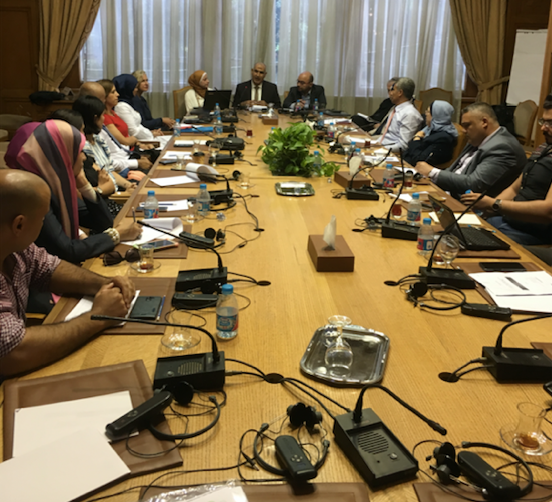Swedac has arranged international training programmes in cooperation with Sida, other authorities and consultancy firms for many years. Over the last two years, Swedac has conducted two parallel training programmes to support the Arab League to eliminate barriers to trade that have blocked the way for the regional free trade agreement, the Pan Arab Free Trade Agreement (PAFTA). Now the final part of the training programmes has been concluded.
Viktoria Lindberg Martinell, who is normally an analyst at Swedac, has been the project manager responsible for the training programmes. She describes how it was the Arab League that contacted Side for help with training programmes that on the one hand aim to eliminate technical barriers to trade, and on the other hand facilitate trade in food commodities.
“Despite having a regional free trade agreement, many different technical barriers to trade have appeared, which significantly hinder interregional trade. They inhibit regional development and run counter to the principles of the WTO”, says Viktoria Lindberg Martinell.
In addition to training personnel within the Arab League on issues of how the organisation can deal with common trade problems, another important part of the project has been to provide training in principles and praxis for international trade. This has primarily consisted of establishing a legal basis for the PAFTA agreement that shall comply with WTO principles, which is mandatory for all WTO members when they enter into bilateral and multilateral trade agreements.
One significant difference from Swedac’s other training programmes is that the Arab League was the only recipient organisation in the project while other projects normally consist of participants from different organisations.
“This approach has provided a stronger ownership for the recipient organisation. The Arab League has both taken part in designing the programme and contributed with informed personnel and experts who have conducted parts of the training programme. The participants have been very involved and there has been a very high level of motivation among the project’s participants. High-level representatives for the Arab League have also beeninvolved in the process. It has been extremely rewarding”, concludes Viktoria Lindberg Martinell.
The two training programmes have now been concluded and the Arab League has confirmed that all of the set objectives have been met. The work that has been put forward also included proposals for the PAFTA agreement which shall constitute the legal basis for a correct implementation of the agreement in accordance with the WTO principles. The next stage for the member states will be to negotiate internally on the implementation of the proposals.
Training programme facts
- The programmes are financed by Sida within the framework for the agency’s international training programmes, ITP. The purpose is to strengthen institutional development and capacity building in low and medium income countries.
- Between 1999 and 2018, Swedac has conducted 92 international training programmes with 2,360 participants from more than 90 countries.
- The “Quality Infrastructure Development in Support of World Trade” programme is based on knowledge about the management of and practical work with national quality infrastructure systems in order to strengthen international trade.
- The “Quality Infrastructure for Food Safety”” programme is based on knowledge about the management of and practical work with new principles and requirements with regard to safe food as well as international trade in food and agricultural products.
- The programmes are divided into five phases, of which phase two consists of two weeks of training in Stockholm and Borås or Uppsala. The entire length of the programmes varies between 16 and 18 months.

